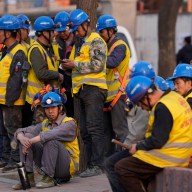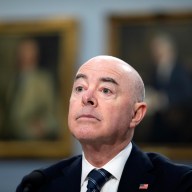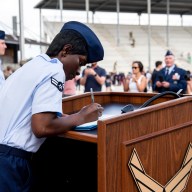By Matt Spetalnick and David Brunnstrom
WASHINGTON (Reuters) – CIA Director Mike Pompeo may have developed personal chemistry with President Donald Trump by delivering his crucial morning intelligence briefings, praising him publicly and embracing his hard-line views on issues ranging from North Korea to Iran.
But with Pompeo tapped to become secretary of state, some U.S. officials and analysts worry about what they see as the Republican former congressman’s habit of telling Trump what he wants to hear, especially as the administration prepares for an unprecedented summit with North Korean leader Kim Jong Un.
Pompeo would bring a number of assets to his new role as the top U.S. diplomat – Trump’s confidence, government experience and an insider’s knowledge of Congress and the federal bureaucracy – if confirmed by the U.S. Senate to replace Rex Tillerson, supporters say.
He also would surely benefit from being more in sync with Trump, who has often been at odds with Tillerson, and would likely be seen by foreign leaders as a more credible surrogate for the president.
At the same time, however, there is concern that as a hawkish Trump loyalist, Pompeo could further harden the president’s foreign policy positions, make it harder for more moderate views to get an airing in the Oval Office and complicate delicate diplomatic efforts with North Korea.
While some intelligence officers have been impressed by Pompeo’s intellect and his advocacy of more robust covert operations, others have said privately that he has used his face-to-face briefings with Trump to selectively feed him intelligence rather than providing unvarnished assessments.
Pompeo, for instance, has tended to play down the intelligence community’s findings of Russian meddling in the 2016 U.S. election and to stress Iran’s missile development and role in Middle East conflicts instead of its adherence to the 2015 nuclear deal, some officials have said.
“Pompeo was the most political CIA director in memory,” an administration official said on condition of anonymity.
“He dived into policy matters in a way that unnerved many professionals at the agency,” the official added, “and morale was taking a blow that was spreading from the analytical side, where some people feared he was tailoring some PDBs (President’s Daily Briefs) to tell Trump what he wanted to hear rather than what the intelligence assessments were.”
However, unlike Tillerson, a former businessman who lacked government experience when Trump picked him last year as secretary of state, Pompeo is well aware of the ways of Washington.
Current and former officials said Pompeo, 54, was likely to get along better with Congress and with the White House, not least because of his conservative bent.
TACKLING TRUMP-KIM SUMMIT
A former U.S. Army officer and Harvard Law School graduate who represented a Kansas district in the U.S. House of Representatives before being tapped to lead the CIA, Pompeo will face the task of grappling with a boss who has shown little regard for diplomacy and no qualms about undermining Tillerson with Twitter posts.
One of Pompeo’s biggest challenges would be gaining the trust of a State Department shaken by the departures of many senior diplomats and embittered by proposed budget cuts.
While State Department officers may be pleased to have a new boss who has the president’s ear, they will be watching closely to see if he breaks with Tillerson’s much-criticized approach of relying on a tight inner circle of aides and marginalizing many career diplomats.
But no bigger test awaits Pompeo, who as CIA director earlier had advocated closer consideration of military options against Pyongyang, than the role he plays in putting together the Trump-Kim summit, a potential breakthrough in the tense standoff over North Korea’s nuclear and missile programs.
Trump agreed last week to such a meeting, surprising Tillerson and other senior aides, and key questions about venue, exact timing and expectations remain unanswered. Pompeo recently warned that North Korea was “a handful of months” away from being able to carry out an attack on the United States with a nuclear-tipped missile.
“Firing your secretary of state right before an unprecedented summit with North Korea is not smart and suggests Trump cannot act strategically,” said Jon Wolfsthal, who served as senior director for arms control and non-proliferation at the National Security Council under former President Barack Obama.
“Pompeo may be more effective at running State than his predecessor, but he is not prepared to manage the regional or global policy coordination needed to help the summit with Kim succeed,” he said.
Daniel Russel, the top U.S. diplomat for East Asia and the Pacific until last April and now at the Asia Society Policy Institute, said Tillerson’s replacement by Pompeo could be positive for dialogue with North Korea.
“The North Koreans see in the Trump administration a political landscape that they can identify with,” he said. “They see a domineering leader who retains the final word on all decision-making and whose subordinates are guided by the leader and not vice versa.”
However, Evans Revere, a former senior U.S. diplomat who dealt with North Korea under former President George W. Bush, said Pompeo’s “partisanship” was a cause for concern.
“Let’s hope that he puts his dedication to the mission and to the country before his partisan or personal loyalty to the president,” Revere said.
(Additional reporting by Arshad Mohammed, John Walcott and Lesley Wroughton; Editing by Mary Milliken and Paul Simao)
















